Yolanda Gil
Artificial Intelligence Index Report 2025
Apr 08, 2025Abstract:Welcome to the eighth edition of the AI Index report. The 2025 Index is our most comprehensive to date and arrives at an important moment, as AI's influence across society, the economy, and global governance continues to intensify. New in this year's report are in-depth analyses of the evolving landscape of AI hardware, novel estimates of inference costs, and new analyses of AI publication and patenting trends. We also introduce fresh data on corporate adoption of responsible AI practices, along with expanded coverage of AI's growing role in science and medicine. Since its founding in 2017 as an offshoot of the One Hundred Year Study of Artificial Intelligence, the AI Index has been committed to equipping policymakers, journalists, executives, researchers, and the public with accurate, rigorously validated, and globally sourced data. Our mission has always been to help these stakeholders make better-informed decisions about the development and deployment of AI. In a world where AI is discussed everywhere - from boardrooms to kitchen tables - this mission has never been more essential. The AI Index continues to lead in tracking and interpreting the most critical trends shaping the field - from the shifting geopolitical landscape and the rapid evolution of underlying technologies, to AI's expanding role in business, policymaking, and public life. Longitudinal tracking remains at the heart of our mission. In a domain advancing at breakneck speed, the Index provides essential context - helping us understand where AI stands today, how it got here, and where it may be headed next. Recognized globally as one of the most authoritative resources on artificial intelligence, the AI Index has been cited in major media outlets such as The New York Times, Bloomberg, and The Guardian; referenced in hundreds of academic papers; and used by policymakers and government agencies around the world.
Envisioning National Resources for Artificial Intelligence Research: NSF Workshop Report
Dec 13, 2024Abstract:This is a report of an NSF workshop titled "Envisioning National Resources for Artificial Intelligence Research" held in Alexandria, Virginia, in May 2024. The workshop aimed to identify initial challenges and opportunities for national resources for AI research (e.g., compute, data, models, etc.) and to facilitate planning for the envisioned National AI Research Resource. Participants included AI and cyberinfrastructure (CI) experts. The report outlines significant findings and identifies needs and recommendations from the workshop.
Semantic Workflows and Machine Learning for the Assessment of Carbon Storage by Urban Trees
Sep 22, 2020
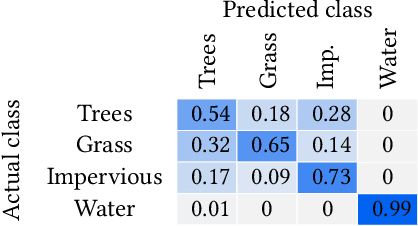
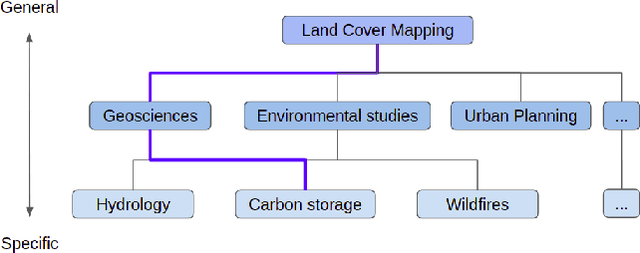
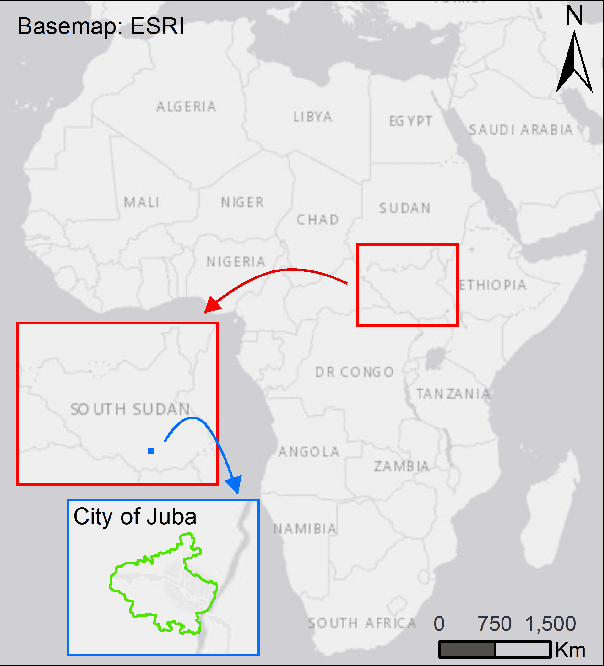
Abstract:Climate science is critical for understanding both the causes and consequences of changes in global temperatures and has become imperative for decisive policy-making. However, climate science studies commonly require addressing complex interoperability issues between data, software, and experimental approaches from multiple fields. Scientific workflow systems provide unparalleled advantages to address these issues, including reproducibility of experiments, provenance capture, software reusability and knowledge sharing. In this paper, we introduce a novel workflow with a series of connected components to perform spatial data preparation, classification of satellite imagery with machine learning algorithms, and assessment of carbon stored by urban trees. To the best of our knowledge, this is the first study that estimates carbon storage for a region in Africa following the guidelines from the Intergovernmental Panel on Climate Change (IPCC).
* Previously published as part of the SciKnow 2019 Workshop, November 19th, 2019. Los Angeles, California, USA. Collocated with the tenth International Conference on Knowledge Capture (K-CAP)
A 20-Year Community Roadmap for Artificial Intelligence Research in the US
Aug 07, 2019
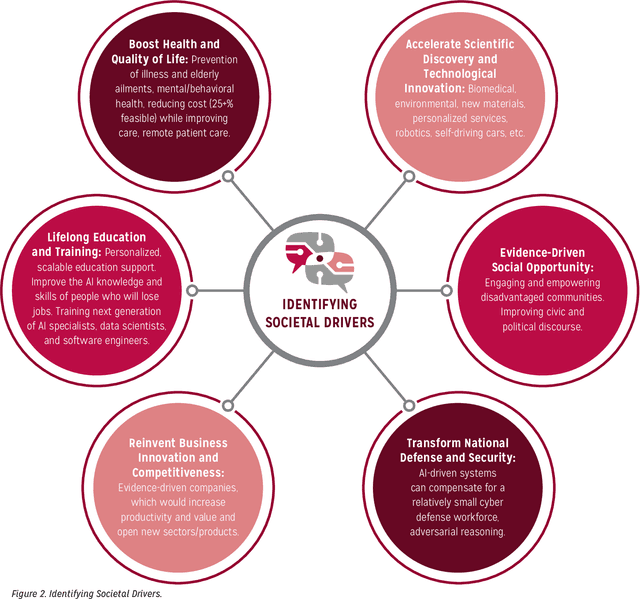
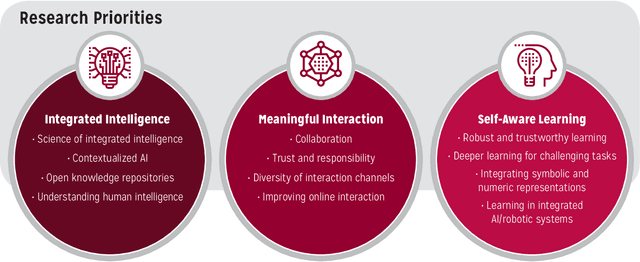
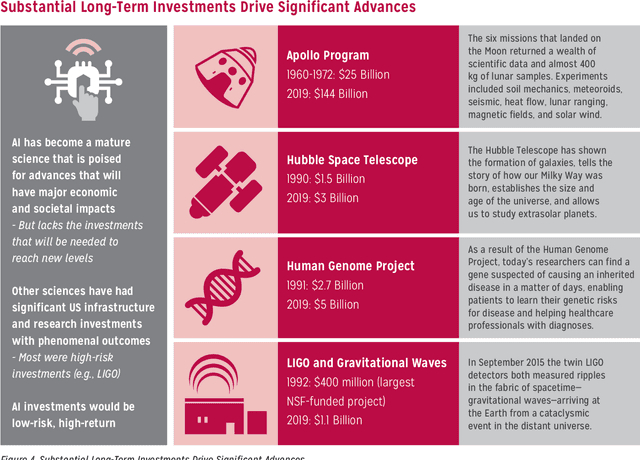
Abstract:Decades of research in artificial intelligence (AI) have produced formidable technologies that are providing immense benefit to industry, government, and society. AI systems can now translate across multiple languages, identify objects in images and video, streamline manufacturing processes, and control cars. The deployment of AI systems has not only created a trillion-dollar industry that is projected to quadruple in three years, but has also exposed the need to make AI systems fair, explainable, trustworthy, and secure. Future AI systems will rightfully be expected to reason effectively about the world in which they (and people) operate, handling complex tasks and responsibilities effectively and ethically, engaging in meaningful communication, and improving their awareness through experience. Achieving the full potential of AI technologies poses research challenges that require a radical transformation of the AI research enterprise, facilitated by significant and sustained investment. These are the major recommendations of a recent community effort coordinated by the Computing Community Consortium and the Association for the Advancement of Artificial Intelligence to formulate a Roadmap for AI research and development over the next two decades.
 Add to Chrome
Add to Chrome Add to Firefox
Add to Firefox Add to Edge
Add to Edge